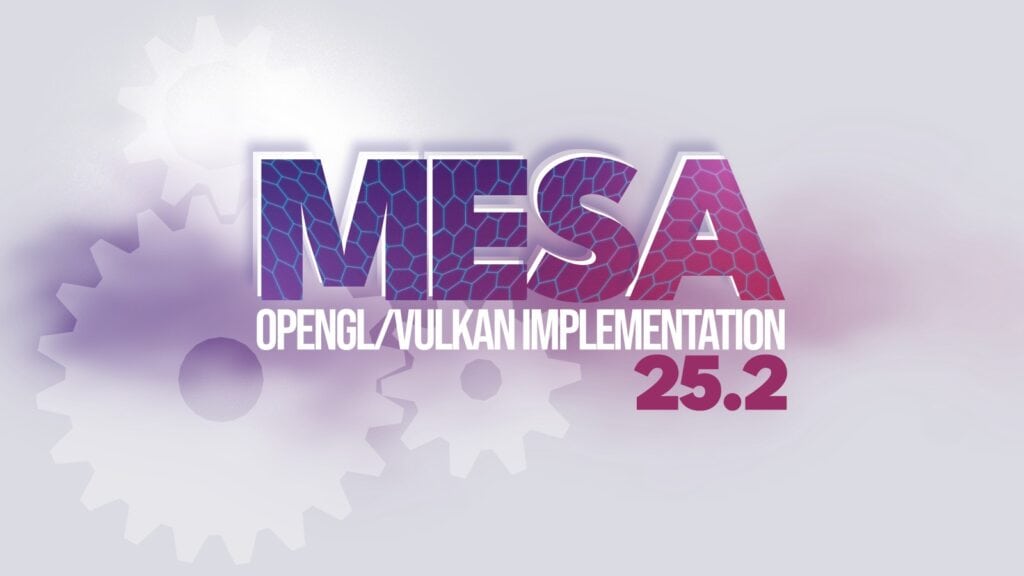Mesa, a crucial open-source library that provides drivers and APIs for various graphics hardware for Linux systems, announced the release of its latest version, 25.2.
This latest release brings OpenGL 4.6 support to the table, but there’s a catch—your mileage may vary depending on your specific driver. In other words, while Mesa 25.2 technically implements the OpenGL 4.6 API, some drivers might not support every feature required, meaning the reported OpenGL version could be lower unless specifically requested at context creation.
On top of that, Mesa now supports Vulkan 1.4, yet the actual supported version depends again on your driver, as reflected by the apiVersion property in VkPhysicalDeviceProperties.
For users of the PanVK driver, major updates include Vulkan 1.2 and 1.3 (on PanVK/v10+), dynamic state extensions, improved shader subgroup handling, and support for multiDrawIndirect commands. RADV also gets substantial love, with Vulkan video support added for GFX12 (RDNA4), plus zero-initialized device memory support and a boost from VK_KHR_robustness2.
There’s significant movement on the OpenCL front, too. Mesa 25.2 finally completes OpenCL 2.0 coarse-grain buffer Shared Virtual Memory (SVM) support for iris and radeonsi drivers. Moreover, several exciting new OpenCL extensions debut across freedreno, iris, llvmpipe, nvc0, panfrost, radeonsi, and zink drivers.
In terms of removed features, the Mesa team says goodbye to clover frontend, X11 DRI2 support, EGL_MESA_drm_image, and the older wl_drm pre-dmabuf support. Additionally, EGL_WL_bind_wayland_display is now deprecated, signaling a clear push towards newer technologies.
Lastly, this release also patches numerous bugs and performance regressions affecting popular games and apps. Notably, graphical glitches in Ghost of Tsushima on Polaris GPUs, RT regressions on RADV, and numerous crashes and graphical issues affecting everything from Chrome video acceleration to Vulkan shader compilation were fixed.
The bug-fix list includes hundreds of entries. For an in-depth review, visit the announcement.
